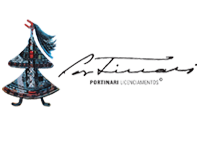General Info
Family background; his military career; graduation in Military Engineering in Rio; conspiracy against President Artur Bernardes; the 5th of July; his transfer to Rio Grande do Sul; Prestes breaks with a military career; outbreak of the 1924 movement; the beginning of Marcha da Coluna; the apolitical posture of the Coluna; Prestes becomes conscious of Brazilian social problems from his contact with misery; criticism of the Coluna; Prestes leaves for Buenos Aires; his first contact with Marxism-Leninism; his close relationship with international communism; the Manifesto de Maio; Siqueira Campos; his arrest in Buenos Aires; Prestes leaves for Russia; affiliation with the Communist Party; his marriage to Olga Benário; returning to Brazil, Prestes is elected member of the Executive Commission of the 3rd. International ; Prestes represents the Communist Party at the Aliança Nacional Libertadora; his arrest in 1935; expatriation and death of Olga Benário; the "controlled freedom" of political prisoners; his patriotism stands above all his personal issues; the amnesty; legalization of the Communist Party in Brazil; the Manifestação do Pacaembú; Prestes elected for Senate; illegality; the Party’s ideological crisis; the opening of the American market during President Juscelino Kubitschek’s term; his support for João Goulart; the 1964 Coup; returning to Russia with his family; breaking with the Central Committee; his defense of Socialism; his belief in the emergence of a revolutionary Communist Party; meeting Portinari; the "Portrait of Olga Benário"; Portinari’s militancy in the Communist Party; the difficulties of being clandestine; Communist Party activities turn legal; intellectuals participation in the Communist Party; Portinari’s candidature; Portinari’s personality; Portinari loses the race for Senate; Portinari's professional mood; other Party candidates; portraits of Prestes by Portinari; Portinari’s painting; political issues; Dutra; Lott; Portinari’s resentment towards the Communist Party; the folly of Diógenes Arruda; the relationship between the Communist Party and the intellectuals; his grief on Olga’s death; his mother’s death; Portinari’s confirmation as a communist; reacionism in Brazil.
























































